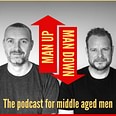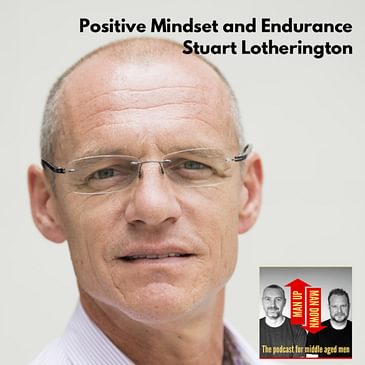Stuart is someone that David has known for more than a decade. They met when David joined East Grinstead Triathlon and Stuart was membership secretary.
At the start of the training season, the club offers a series of talks on how to improve performances. During David’s first season Stuart delivered a talk on how your mindset can impact your performance.
For example, Stuart described a situation where you turn up to a race and the weather is awful. The natural reaction for most competitors is for their heads to go down. However, Stuart said, this can give you an advantage.
If you accept that you can’t change the conditions and take into account that it’s put your fellow competitors into a negative mindset, then it puts you at an advantage. In short – it’s not what life throws at you, it’s how you react to it.
However, it wasn’t until a few years later that David discovered that Stuart’s profession wasn’t in sports performance but in sales performance, as the managing director of sales consultancy SBR.
Stuart says that while he is now a highly demand consultant, the majority of learning came from being in the sales trenches.
Stuart started his sales career, some might argue at the lowest level of the sale world, by knocking on residential doors selling aerial photographs of people’s homes. He stayed there for over 10 years working his way through the ranks to be the International Head of sales.
Now he demystifies the process of business development by working with organisations (ranging from Google to TikTok) and assessing the most appropriate sales process for their respective audience.
However, Stuart has also taken on a range of endurance challenges such as a multi-day marathon endurance race across the Sahara (the Marathon des Sables), a race to the North pole and numerous Ironman triathlons.
David said that he has always felt inspired by Stuart’s passion for adventure and new experiences, which this year alone have included a biking trip round Cuba, a road trip round Spain. In short Stuart never seems to stop!
David asked where this positive mindset came from – was it something he developed through his sales experience, or did he always have this approach to life?
Stuart says the first time he became aware of this was when he was booked in for his driving test - on Friday 13th. Stuart said that as soon as he saw the date, he thought “I’ve got this”.
After passing the test, the examiner mentioned that he was surprised Stuart turned up, as so many had cancelled due to the date. Stuart said this approach helped him a lot when he entered the world of sales. Stating that he realised (and the data supports this) that many salespeople give up after the first couple of approaches. So, when you’re prepared to put in a little more effort (such as making extra prospecting calls), you automatically put yourself ahead of the field.
Stuart said this was the approach then transferred into running and triathlon.
[...]
If you want to reach out to Stuart, you can do that via his LinkedIn: https://www.linkedin.com/in/stuartlotherington/
He also recommends taking a look at some of SBR’s content on goal setting.
Hosted on Acast. See acast.com/privacy for more information.




